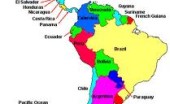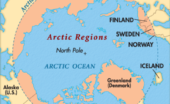Johannah Bernstein post: "eternally proud of my father’s extraordinary aeronautical engineering. legacy. here is a photo of the Canadair Water…
Wednesday Night #1748
Written by Diana Thebaud Nicholson // September 2, 2015 // Wednesday Nights // 1 Comment
“Although the calendar always says January 1 is the beginning of the year, the real year — school year, university year, job year, posting year, and so many annual changes — tend to occur at the beginning of the autumn. And the end of summer vacation in Canada is certainly a moment of change. So here is to all of us who operate on the September New Year! With great hopes for what lies ahead!” – Andrew Caddell, 1 September 2015
In the same spirit, we look on this Wednesday as la rentrée. And what more fitting way to start the new year’s WN curriculum than in the company of Peter Berezin whose comments on recent events have focused on China, and he is not alone. From initial worries that devaluation presaged a currency war, the experts are now questioning China’s governance problems. See the Financial Times We should worry about China’s politics not the economics and the Project Syndicate piece, China’s Complexity Problem wherein Stephen S. Roach asks whether the country’s leaders are juggling too many policy objectives, pointing out that “There are many moving parts in China’s daunting transition to what its leaders call a moderately well-off society. Tectonic shifts are occurring simultaneously on several fronts – the economy, financial markets, geopolitical strategy, and social policy. The ultimate test may well lie in managing the exceedingly complex interplay among these developments. Is China’s leadership up to the task, or has it bitten off too much at once?” At least one Wednesday Nighter concurs, suggesting that the Chinese leadership simply does not know which economic levers to pull.
Meanwhile, Cleo Paskal weighs in with her analysis of the evolving geopolitical role of India in light of recent developments (listen to: John Batchelor Show: with Gordon Chang, Forbes.com. and Cleo Paskal, Chatham House).
Ron Meisels will introduce Turkish-born Faruk Seyrek who has held CFO positions in 2 large holding companies and a nation-wide bank in Istanbul. In 1982, he established a tiny consulting company catering to international investors setting themselves up in Turkey as the country opened up for international investors. The clients were mostly top Fortune 100 companies either building their first-time presence in Turkey or expanding for whom he worked as their “eyes and ears” on site during set-up of operations or until operational management teams arrived to operate the facility. He established and was a shareholder of a mid-size brokerage company with seat on the Istanbul stock exchange (1992-3). The Istanbul stock exchange kept going UP during the First Gulf War next-door at which time, he “decided to convince my partners to sell the whole company and walk out of the casino.” We welcome such highly qualified “eyes and ears” to guide us through the intricacies of Turkish politics and foreign policy.
Declining oil prices continue to make some economists -and many more politicians- jittery. An interesting take from Reuters Why $40 oil is killing Iraq, Venezuela and others, but not Russia [or Scotland] suggests a parallel between the popularity of Putin and the SNP’s Nicola Sturgeon’s “propelled by a force more powerful — at least to date — than the desire for better living standards. Especially in Russia, there is a pride in displaying courage and patriotism in the face of deprivation and aggression, seen as coming largely from the United States. In Scotland, the propaganda is more muted and the English enemy less clearly delineated, but nationalism needs a foe, and the English are it.”
Stephen Harper might wish for the same popularity in the face of Tuesday’s long-expected announcement that Canada is officially in recession. Harper says economy ‘back on track’ as data point to technical recession The confirmation that Canada experienced a technical recession in the first half of 2015 provided immediate fodder for the opposition, while the Conservatives cheerily said it is good news that the worst is over and the economy is improving. The debate will no doubt continue, along with the endless revisionist polls that only confirm what we already know: it’s too early to tell. And the other non-news item that Half of Canadian voters are undecided.
At least we are not headed to the polls for the third time in a year like Greece!
As to the campaign to the south, we are delighted to yield to our friend and some-time Wednesday Nighter, Professor Stephen Blank who writes in Open Canada “Perhaps in the midst of Canada’s decorous electioning, we might pass a few summer moments pondering the circus south of the border. The spectacle here obscures some fundamental changes that have reshaped the U.S. election system but it also illuminates some major uncertainties.” U.S. election: Notes on the circus to the South — How a divided Republican vote will likely mean another fragmented government to come.
While the presidential aspirants scramble, President Obama continues to give the lie to the lame-duck epithet. It seems he will secure the magic number of 34 Senate votes needed to sustain his veto on a resolution of disapproval of the Iran nuclear deal, and so he has turned his attention to a virtually unprecedented trip to Alaska, where he gave a strong voice to American leadership of the Arctic Council (The Arctic 2015) – what a contrast with the leadership of Canada’s tenure! [ (Canadian Press) Canada, with the world’s longest Arctic coastline, had an official delegation in Anchorage headed by a senior civil servant rather than Foreign Affairs Minister Rob Nicholson. Nicholson’s absence was “due to the ongoing federal election,” according to departmental spokeswoman Diana Khaddaj — an apparent nod to the “caretaker convention” that discourages all but the most routine and uncontroversial ministerial actions during the election period when Parliament is dissolved.]
More news this week of senseless destruction of world heritage by ISIS; this time, it is the Temple of Bel. Al Jazeera asks Why is ISIL targeting cultural heritage?. The Brookings Essay The Believer is a detailed portrait of Abu Bakr al-Baghdadi, the ruler of the Islamic State. A long, fascinating read.
As the world-wide migration crisis continues and proposed European coping mechanisms meet with disapproval and acrimony, UNHCR reminds us that the terms migrant and refugee are not interchangeable ‘Refugee’ or ‘migrant’ – Which is right?. The CBC’s Nahlah Ayed stresses that Most seeking asylum in Europe are refugees, not mere migrants The BBC helpfully outlines in some detail Five obstacles to an EU deal. The emphasis in most reports is on the political and economic roots of the crisis, however Jaime de Melo writing for Brookings Climate change and the growing challenges of migration reminds us that “Dealing with increasing migratory pressures from economic factors and rising temperatures will require countries to delegate national sovereignty and accommodate far greater migration flows than in recent history, or face widespread conflicts.”
We were blissfully unaware that New Zealand is looking to adopt a new flag – but today’s news that New Zealanders pan 4 remaining choices for new flag — Over 10,000 designs submitted to government’s Flag Consideration Panel brings back memories of the great Canadian flag debate. We would venture that the 4 designs look pretty awful to us, but of course it’s all a matter of taste. And that’s the problem.
Two unrelated local news items to cheer us up. On Monday, Quebec’s program review committee -chaired by Lucienne Robillard- released its second and final report on improving public spending efficiency, which recommended the province make its liquor stores compete with the private sector. Mme Robillard also examined the cost of Revenu Québec and questioned its pertinence, but didn’t go as far as recommending it be abolished.
Beryl Wajsman greeted the news with boundless enthusiasm: “Let the joy be unconfined! A ray of sanity and reason in Quebec!” However, Tony Deutsch cautions that “All this has been suggested before. The unions representing SAQ and Revenu Quebec employees will not make it easy to introduce reforms leading to job losses for their members.”
The second announcement is the creation of “Montreal’s Central Park” at the old Miron quarry. We thought that Mont Royal occupied that position, but never mind, we think it is an excellent project, especially as Mayor Coderre muses that it would be appropriate to name it for Frédéric Back




One Comment on "Wednesday Night #1748"
Thank you for a very interesting evening last night.
I think we got a little sidetracked into the eastern end of the Mediterranean and Middle Eastern war refugees and didn’t talk about the floods of refugees at the western end of the Mediterranean. These refugees are coming from sub-Saharan Africa, and also as far east as Somalia, and can be classified as environmental refugees, moving as a result of drought, overgrazing and desertification, and conflict. This is a result of environmental degradation, linked in part to rapid human population growth (sub-Saharan Africa has one of the highest birth rates in the world) and climate change. There was disruption yesterday to the Eurostar train service through the Chunnel by refugees blocking the tracks in Calais. We need to not get so wrapped up in the Syrian crisis that we forget the other faces of this emerging refugee wave.
I also would like to add that none of this should be a surprise. Back in the 1970’s, those looking at Global Change predicted these large scale migrations as overpopulation and resource depletion would create environmental refugees. Climate change was also predicted. One thing about getting old is looking back on a career in environmental science and seeing that everything that was predicted is now coming true. We were warned. Judith (Patterson)